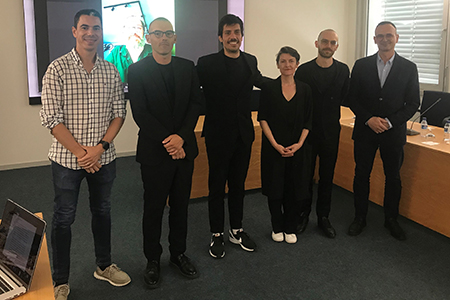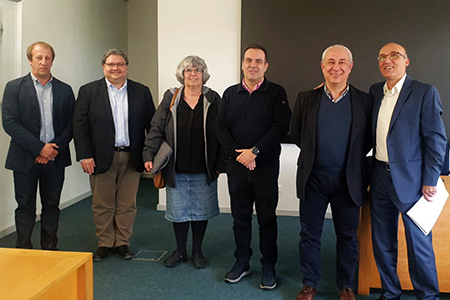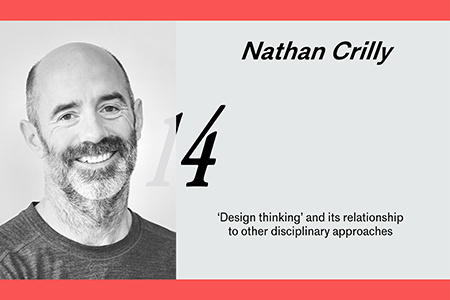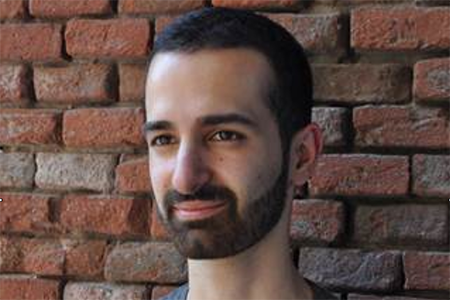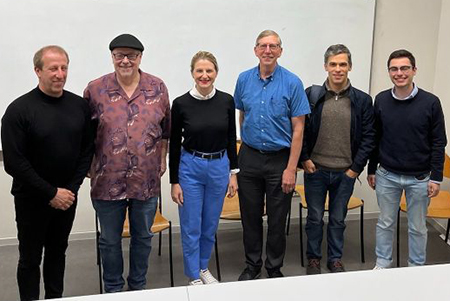Candidate
Juliana Carolina Campos Monteiro
Date, Time and Location
June 4, 14h30, Room Professor Joaquim Sarmento (G129), DEC, FEUP
President of the Jury
António Fernando Vasconcelos Cunha Castro Coelho, PhD, Associate Professor with Habilitation, Faculdade de Engenharia, Universidade do Porto.
Members
Paulo Nuno Gouveia Vicente, PhD, Associate Professor, Departamento de Ciências da Comunicação, Faculdade de Ciências Sociais e Humanas, Universidade Nova de Lisboa;
Daniel da Cruz Brandão, PhD, Assistant Professor, Departamento de Ciências da Comunicação, Instituto de Ciências Sociais, Universidade do Minho;
Teresa Margarida Loureiro Cardoso, PhD, Assistant Professor, Departamento de Educação e Ensino à Distância, Universidade Aberta;
Dinis Miguel de Almeida Cayolla Ribeiro, PhD, Assistant Professor, Departamento de Ciências da Arte e do Design, Faculdade de Belas Artes, Universidade do Porto;
Carla Susana Lopes Morais, PhD, Assistant Professor, Departamento de Química e Bioquímica, Faculdade de Ciências, Universidade do Porto (Supervisor).
Abstract
The expansion of digital tools and participatory media created unprecedented possibilities for the maintenance and sharing of social memory and cultural identity knowledge. These possibilities are expanding in parallel with a context of an increasingly aged society, where elders are privileged keepers of regional cultural knowledge but often don’t have the opportunity to pass it on to future generations, making it prone to shortly disappear. This research approaches digital storytelling during intergenerational exchanges as a stage for a participatory contribution to the maintenance of cultural identity. We sought to determine how intergenerational dynamics can give place to cultural identity narratives, as well as how digital media can support the maintenance of cultural identity. For that purpose, we promoted the project NOOA: Narratives Of Our Age, with the premise of bringing generations together in sharing stories on topics such as Memories, Crafts, Myths, and Traditions, to endorse the continuity of the cultural identity of the Vale do Sousa region, using the potential of digital media in this process. With an action research design and an ethnographic approach, from 2018 to 2021, this project reunited three intergenerational groups, composed of participants aged 16 to 85 years old, in a set of activities designed to foster intergenerational dynamics. We sought to gather qualitative perceptions about the phenomenon of storytelling in the participatory maintenance of cultural identity through intergenerational dynamics. To this end, our research was based on data collected through detailed observations and through the application of semi-structured interviews and group discussions. We developed a five-step intergenerational storytelling framework to encourage the exchange of cultural identity knowledge, including digital registration, dissemination, and discussion in-person and online. This framework was submitted to a cyclical evaluation and its adjustments, in accordance with the action-research method, and it was implemented in three phases: phase one corresponded to a group dynamic component, through brainstorming and story planning; phase two corresponded to the creation of digital stories; phase three corresponded to dissemination, with the publication and sharing of these stories in the project’s digital spaces. These steps were conducted through in-person digital storytelling activities, in which cultural identity knowledge was shared and discussed in intergenerational partnerships, resulting in the participatory creation of 35 digital stories, that were afterwards shared and also discussed on the Project’s digital spaces. The outcomes of the activities, as well the enthusiasm and the reflections that occurred during the process, highlight the investment of participants in the transmission and maintenance of knowledge related to their experiences and knowledge acquired throughout life, in a family and community context. The observations of intergenerational dynamics, as well as the results of the semi-structured interviews, suggested a growing curiosity, involvement and overall understanding and retention of the stories of cultural identity, by both seniors and juniors, as well as a growing curiosity of senior participants regarding the pervasive digital reality presented to them by the juniors. Likewise, we observed the importance of empowering groups with spaces of sharing, both face-to-face and online, to enhance intergenerational exchanges around the knowledge of cultural identity. By promoting opportunities for intergenerational dialogue and empowering groups with face-to-face and online sharing spaces, we contributed with the development and application of a storytelling framework and digital spaces to safeguard, discuss and disseminate some of the specific cultural knowledge of the region of Vale do Sousa in Portugal. We observed the potential of using digital storytelling dynamics to break through barriers of communication between generations and to perpetuate and value cultural identity knowledge, acquired throughout life. This research goes beyond the aim of documenting the envisaged cultural identity knowledge, by combining creativity during the digital storytelling processes with connectivity among the participants on a community level, by sparking the dialogue between generations and enhancing the social impact of cultural identity knowledge and the self-knowledge value that generations are able to share through stories. We examined the opportunities and challenges of digital media as a platform and a catalyst for cultural identity maintenance, situating the problematic of cultural literacy in a contemporary setting. We conducted a thorough assessment of the stakeholders involved in participatory cultural identity maintenance in our present context, adding the observation of their synergies in a real context. This allowed us to examine the diversity of outcomes and the multiplicity of variables that contribute to it, as well as to grasp the impact that this new information flow paradigm may have on how we currently approach cultural identity maintenance.
Keywords: Intergenerational Digital Storytelling, Cultural Identity, Cultural Literacy, Participatory Action-Research.

